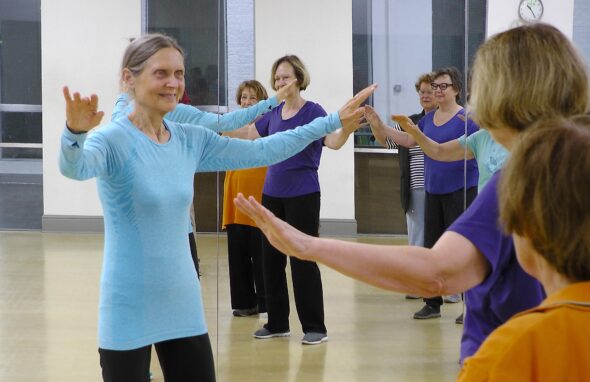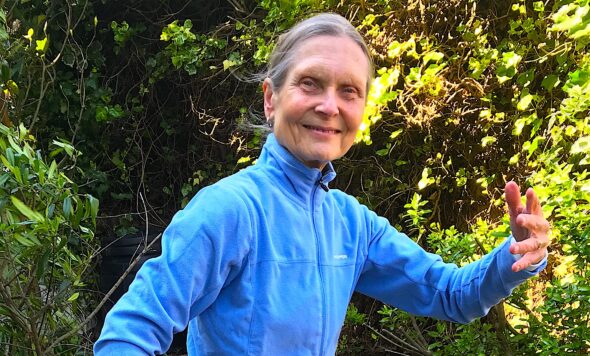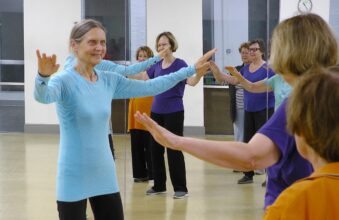Interviewer
Can you talk a little bit about your experience with FAABI at the celebration of Jane and the Chinese New Year event?
Richard Reoch
Mmm. One of the things that Jane did with her many students to whom she was teaching Tai Chi, whether they were in in person classes or online, was that every Chinese New Year, she would turn that into a special event for them. So first of all, she would ask everyone to wear red: it could be red earrings, red bracelet, a little red ribbon, or, as many people turned up, you know, again almost in completely red outfits, because red is the traditional colour associated with the Chinese New Year. And, on these occasions, Jane would explain what the year was in the Chinese zodiac. She would also say, “Now, if you were born in such and such a year, this means this year is going to be this way for you or that way.” And, at the in person events, she would bring tea, she would bring Chinese sweets and fortune cookies, and just generally have a celebration of the culture out of which this amazing health system has come over the centuries. So after she died, I met with some of her students and I said, “You know, how do you think we could best celebrate what Jane offered to everybody?” I was very keen that people not spend their time going, “Oh, dear, we’ve lost Jane,” because what Jane wanted them to have was the gift that she had given them. And the value of that gift would be recognized by continuing to practise what Jane had taught them. So, we came up with the idea that on the Chinese New Year, which was just a few months after her death, that we would sort of replicate the kind of celebration that Jane had. And these were marvellous events. We had a week in which I think we had at least seven events. They were extraordinarily well attended. And it was a mix of sharing with people, maybe some things they didn’t know about Jane, like some photos, very special photos from China, but also giving all these people the chance to speak from their hearts about their experience of Jane. And in the beginning, I think we were all a little worried that maybe people would be kind of so lost in grief that they might be shy about speaking or worried that they would burst into tears. But, amazingly, somehow there was such a warm and open-hearted environment created by everybody on these calls, that we had no trouble at all filling a full hour with people saying really amazing things. And I think people’s spirits were actually lifted by these gatherings.


